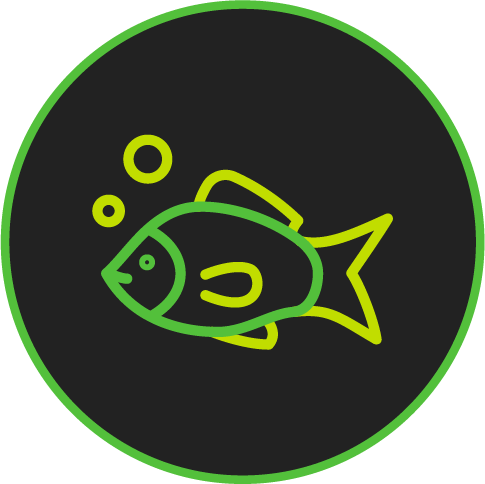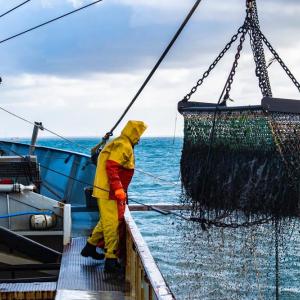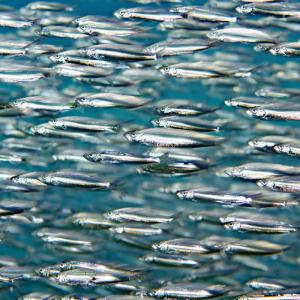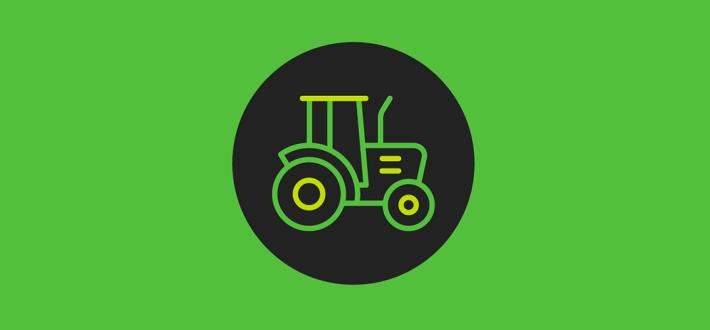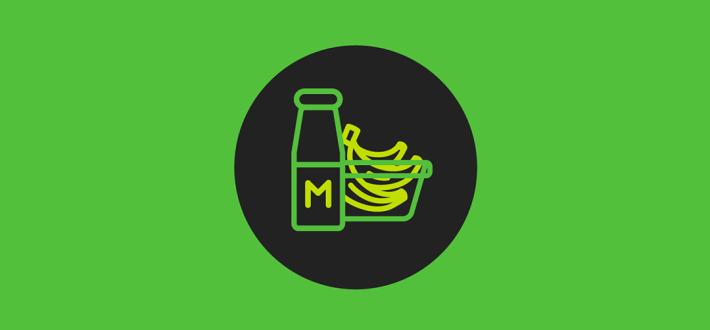
Covering 70% of the planet, the ocean is vital for biodiversity, climate regulation, livelihoods, and nutrition for billions.
With 35% of global fish stocks overfished and millions of marine wildlife impacted by seafood production, urgent action is needed. UK retailers sell around 400,000 tonnes of seafood annually and a holistic approach to seafood sourcing is therefore essential to protect ocean health, and the communities it supports.

WWF Basket - Marine Outcomes and Measures
The WWF Basket ambition is that 100% of marine resources from sustainable sources by 2023.
For the first WWF Basket marine metric, WWF collates data from retailers on the percentage volume of wild caught and farmed seafood sold in the UK that is third-party certified. This metric has been selected because certification is a widely accepted means to assess the sustainability of seafood sourcing, and an important tool for ensuring that seafood species are from better managed fisheries and aquaculture farms.
However, as certification alone is not enough to stop overfishing or prevent the threats to marine and freshwater wildlife from seafood production, the WWF Basket also asks retailers to provide data on the percentage of wild caught resources that adhere to all aspects of the Seafood Jurisdictional Initiative.
The Seafood Jurisdictional Initiative approach takes into consideration a broader range of ecosystem and fisheries’ impacts, in order to eliminate threats to ETP species, tackle overfishing, address social welfare issues, and reduce the climate impacts of seafood production and consumption.
WWF has developed tuna and wild-caught seafood sourcing issue identification checklists to support retailer reporting on adhering to the Seafood Jurisdictional Initiative.
When it comes to farmed seafood, we also need to reduce reliance on wild caught species to supply a growing aquaculture industry. The WWF Basket will track this through data on the average Forage Fish Dependency Ratio (FFDR) of fishmeal, fish oil of fish feed.
The FFDR gives an indication of the amount of wild-caught species that are used to produce farmed seafood. The lower this number the better in terms of marine sustainability, and the WWF Basket outcome is for this to be less than 1 by 2030. Find out more about WWF's work on aquaculture here.
Find out more
You can find out the latest WWF Basket data on marine sustainability in our 2024 report, What's in Store for the Planet: the Impact of UK Shopping Baskets on Climate and Nature - 2024.
You can find out more about the WWF Basket ambition for marine sustainability in the Blueprint for Action and the latest WWF Basket Outcomes and Measures.
Our 2025 report Not In The Net assesses the risks to endangered species from global fisheries supplying the UK seafood market. This report was independently produced by WWF, with funding from our partnership with M&S.
What's in store for the planet: The Impact of UK shopping baskets on climate and nature 2024
Resource bank
Tuna Sourcing Issue Identification Checklist
The first step to supporting seafood the jurisdictional initiative is to have a better understanding of specific tuna value chains that companies are sourcing from.
This involves checking with the downstream and/or upstream stakeholders to seek evidence, verifying the availability of existing information and identifying any gaps in information.
WWF has developed a checklist of key issues within tuna sourcing which can help tuna value chain stakeholders to identify the strengths and shortcomings of a specific supply chain against selected elements of the seafood jurisdictional initiative approach. Find out more here.
Wild-Caught Seafood Sourcing Issue Identification Checklist
The first step to supporting seafood the jurisdictional initiative is to have a better understanding of specific seafood value chains that companies are sourcing from. This involves checking with the downstream and/or upstream stakeholders to seek evidence, verifying the availability of existing information and identifying any gaps in information. WWF has developed a checklist of key issues within wild-caught seafood sourcing which can help wild-caught seafood value chain stakeholders identify the strengths and shortcomings of a specific supply chain against selected elements of the seafood jurisdictional initiative approach. Find out more here.
Risky Seafood Business
WWF is working with companies to adopt the recommendations outlined in the recent Risky Seafood Business report towards reducing the global footprint of the UK’s seafood consumption.
Carbon Reporting in the Aquaculture Sector
An outline of key steps to report carbon emissions in the aquaculture sector.

Get in contact
Cross-sector collaboration is the most effective way to bring about the type of environmental change that is needed.
Please contact business@wwf.org.uk if you would like to collaborate with the wider industry on any of the areas addressed in the WWF Basket.

